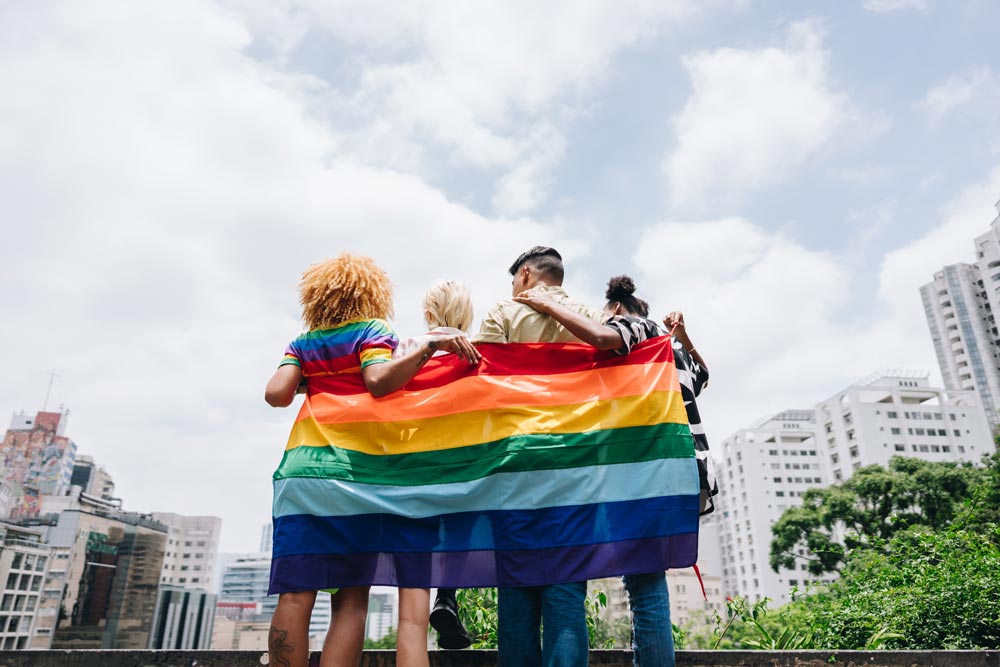The more adversity a group of people experiences, the more likely it is that the people in that group are to develop mental health concerns. As we enter June, the month when the LGBT+ community celebrates Pride, it is important to remember the challenges that those celebrating experience as a result of their sexual orientation or gender identity. At Carolina Dunes Behavioral Health, we provide trauma-informed care with empathy, compassion, and respect for each client.
Unique Traumas
We all experience hardship. Nearly 2/3 of American adults say that they have lived through at least one traumatic experience. Unfortunately, people who are not heterosexual or cisgender not only experience the traumas that the rest of us do, but they may have additional challenges to overcome, just because they are LGBT+.
Violence and Assault
LGBT+ individuals, particularly youth, are at higher risk for violence and assault:
- 10% of LGBT+ students report being threatened or injured with a weapon on school property.
- 29% of LGBT+ students say they’ve been bullied at school, compared to 16% of their non-LGBT+ peers.
- 28% have experienced cyberbullying.
- More than 50% of LGBT+ adults have been harassed or subjected to violence because of their sexual orientation or gender identity.
Harassment, Discrimination, and Rejection
In addition to physical threats, many LGBT+ individuals face ongoing social and systemic challenges:
- Rejection from friends, family, and society at large
- Discrimination in housing and employment
- Threats to their rights at the local, state, and national levels
- Internalized homophobia or transphobia due to societal stigma
Barriers to Treatment
Accessing mental health or addiction treatment can be especially difficult for LGBT+ individuals due to:
- Denial of services
- Providers who are insensitive, prejudiced, or hostile
- Facilities that use binary gender segregation make them unwelcoming or unsafe
- Rejection or misgendering within recovery groups
- Higher rates of being uninsured, making care less accessible
Compounding Factors
Some LGBT+ individuals also face intersectional challenges due to other aspects of their identity, including:
- Race
- Religion
- Disability status
- Socioeconomic status
These overlapping identities can increase the risk of trauma, discrimination, and barriers to care even further.
More Trauma Creates More Trouble
Just like anyone else, when LGBT+ people experience more pain and suffering than they can manage, it can result in poor mental health outcomes:
- Nearly 40 percent of LGBT+ people reported having a mental illness in the prior year.
- LGBT+ teens are six times more likely than heterosexual, cisgender teens to have depression symptoms, and more than 40 percent of LGBT+ youth reported considering suicide, compared to 13 percent of non-LGBT+ youth.
- While only 4 percent of the general population of adults reported considering suicide in the past year, 48 percent of trans adults reported thinking about ending their lives.
- Heterosexual women are less likely to drink heavily than gay women, and bisexual women drink more heavily than either, on average.
- Gay men are more likely to use alcohol and illicit substances, but the number drops as gay men get older, become more integrated within gay culture, have lower stress levels, or become more open about their sexual orientation.
How LGBT+ People Can Get Support
LGBT+ people have had to build their own supports to ensure that they have what they need to navigate life’s struggles, when other systems have failed them. Some of the best national resources for LGBT+ people include:
- The Trevor Project: Phone, chat, and text for LGBT+ young people
- Mental Health Fund for Queer and Trans People of Color: Financial support for mental health for people of color who are LGBT+
- Gay, Lesbian, and Straight Education Network: Resources for educators, students, and local groups working to provide safe, inclusive spaces for LGBT+ kids
- Human Rights Campaign: LGBT+ equality organization focused on civil rights
How to Become an LGBT+ Ally
If you aren’t sure what you can do to advocate for people in the LGBT+ community, a great place to start is:
- Refusing to participate in bullying, harassment, or discrimination against people whose sexual orientation or gender identity causes them to be marginalized
- Educating yourself about the history of the LGBT+ community and their present struggles
- Familiarizing yourself with common terms associated with gender identity and sexual orientation
- Being kind and accepting to people who come out to you about their sexual orientation or gender identity
- Listening to people who are LGBT+, about their experiences and struggles
- Watching for signs that bullying or violence could be occurring and taking action to address it immediately
- Volunteering and/or donating money to programs that support LGBT+ mental health
At Carolina Dunes Behavioral Health, in Leland, North Carolina, we treat mental illnesses and co-occurring mental health and substance use disorders. Our team provides support to adolescents, adults, and families when inpatient care is needed and following discharge.





